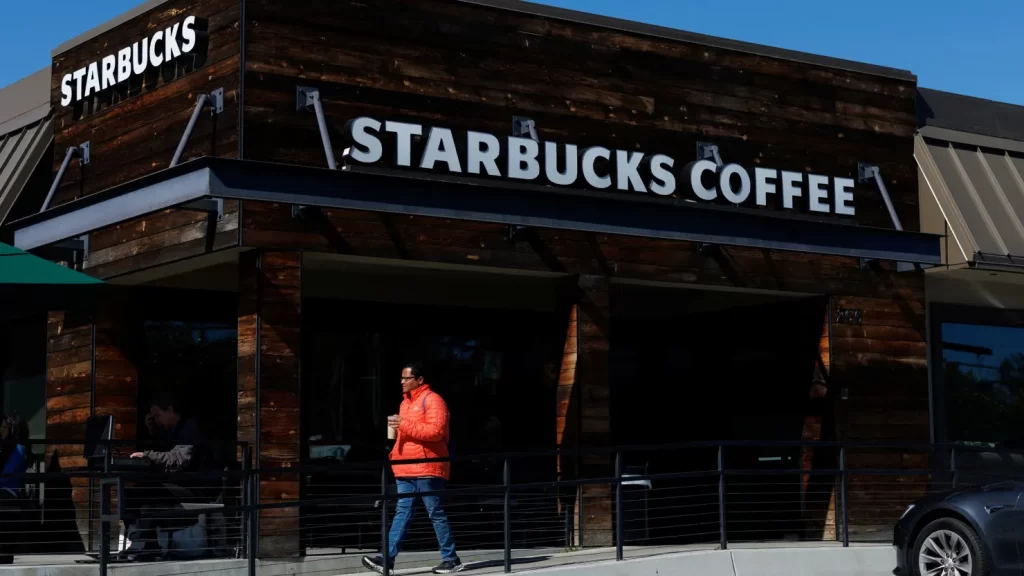Key Points:
- Restaurant stocks, including McDonald’s and Chipotle, experienced declines as investors grew concerned about a potential recession.
- While President Donald Trump’s tariffs may not directly affect most restaurants, a slowdown in consumer spending could harm the industry.
- Historically, fast-food chains have performed better during economic downturns.
Restaurant Stocks Decline Amid Recession Fears
Restaurant stocks fell in Monday’s morning trading as investors grew increasingly concerned about the likelihood of a recession.
U.S. stocks have faced a three-day slump after President Donald Trump’s unexpected announcement of high tariffs on goods imported from major trading partners. While analysts do not anticipate a direct impact from the tariffs on most restaurant companies, the inflationary effects that are likely to follow could put pressure on consumers and lead to broader economic challenges.
“We view the direct cost impact of tariffs on restaurants as manageable, with a focus on select commodity costs, but the greater risk lies in the added pressure on consumer spending and demand within the industry,” said UBS analyst Dennis Geiger in a note to clients.
The decline in restaurant stocks affected companies across the board.
Shares of Starbucks dropped more than 2%, following a downgrade to neutral by Baird, citing the economic challenges in the near term. The coffee chain, which is already working to revitalize its U.S. operations, has seen its stock fall nearly 20% since the tariffs were announced.
“Factors contributing to this drop include higher coffee costs due to tariffs, anti-American sentiment, and concerns about recession risk,” wrote Bank of America Securities analyst Sara Senatore.
Coffee production, primarily sourced from Latin America, Asia, and Africa—regions that make up the Coffee Belt—was hit by Trump’s new tariffs on key coffee exporters, including Vietnam, Brazil, and Switzerland. Coffee production is difficult to move to the U.S. due to high domestic demand and climate limitations.
The escalating trade tensions also put Starbucks’ international sales at risk, particularly in China, where the company’s second-largest market has previously seen boycotts against Western brands due to political reasons.
Impact on Casual Dining and Fast-Casual Chains
Shares of casual dining companies also saw declines. Dine Brands, which owns Applebee’s and IHOP, saw a nearly 3% drop, while rivals such as Darden Restaurants and Texas Roadhouse experienced more moderate losses of less than 1% and 2%, respectively.
Fast-casual chains, once a favorite among investors, also suffered. Shares of Chipotle fell nearly 2%, Sweetgreen’s stock dropped 1%, and Wingstop saw a decline of less than 1%.
Fast-Food Chains Are Not Immune
Fast-food chains weren’t immune to the downturn either. McDonald’s, Restaurant Brands International, and Yum Brands all saw their shares dip in morning trading.
In past recessions, fast-food chains have generally been more resilient, as budget-conscious diners often shift from full-service or fast-casual restaurants to cheaper alternatives like McDonald’s or Taco Bell. However, last year’s decline in consumer spending hurt fast-food establishments as well. Lower-income consumers visited fast-food chains less often and ordered smaller meals, while wealthier customers stuck to their usual dining habits. This resulted in declines in same-store sales for quick-service restaurants.
Few Stocks in the Green
A few restaurant stocks managed to gain ground. Dutch Bros, a fast-growing competitor to Starbucks, saw its shares rise more than 4% in afternoon trading after falling nearly 10% on Friday. Cava also posted a gain, rising over 6%.
F.M.I.E Sources

